”"Through me the way is to the city of woe,
through me the way is to eternal pain,
through me the way among the lost people."“
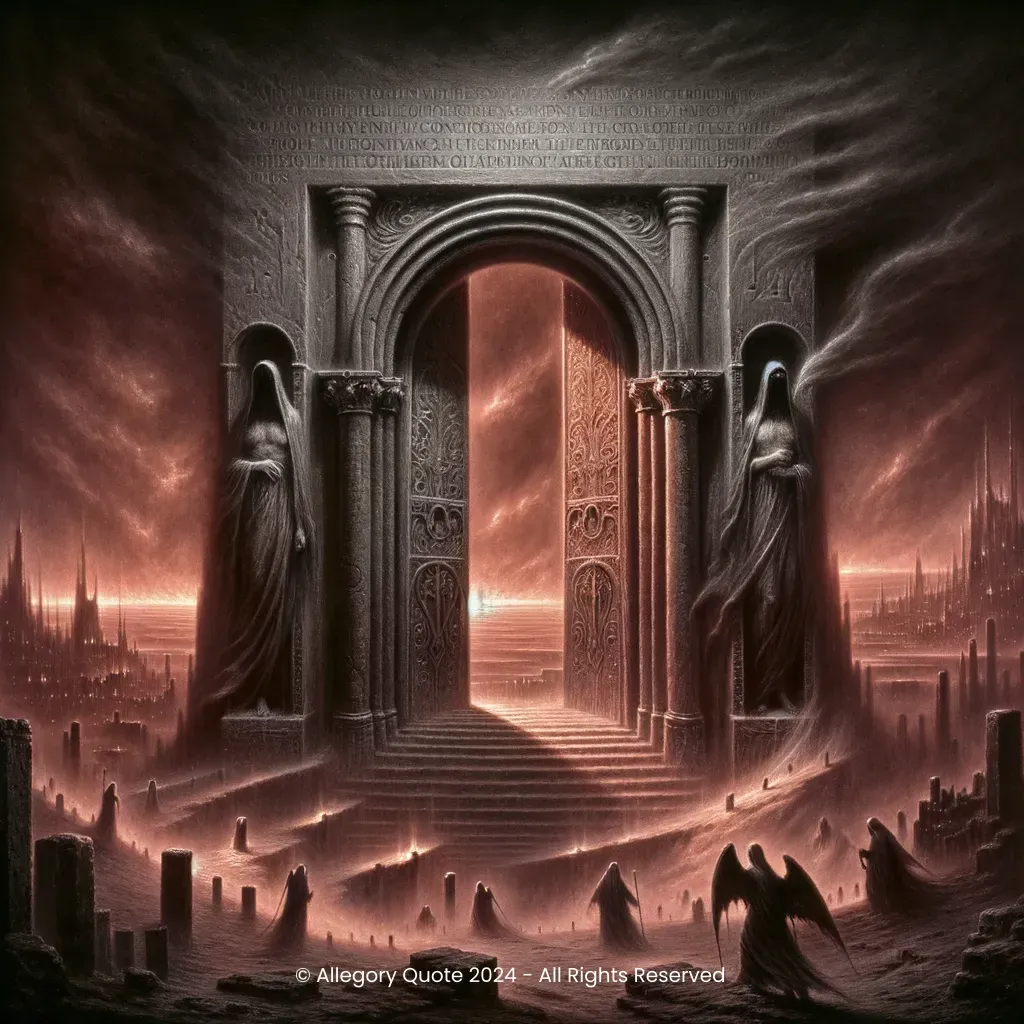
0
0
0
0
- Meaning
- The significance of this phrase is profoundly symbolic and encapsulates the essence of Dante's Hell. The "city of woe" represents Hell itself, a place of everlasting suffering for the damned souls. "Eternal pain" suggests the relentless and infinite nature of the suffering that awaits those who cross that threshold. "Among the lost people" indicates that those who enter are irrevocably damned souls, forever separated from divine grace. Altogether, the phrase represents a terrible yet solemn invitation, a synthesis of the anguish and despair that characterize the realm of Hell.
- Allegory
- The elements of the image include a majestic entrance carved in dark stone to represent the "city of woe"; this entrance is decorated with Gothic characters to give a sense of antiquity and mystery. The massive doors open towards a desolate landscape representing the path to "eternal pain" and the "lost people". The reddish and smoky light in the background evokes the idea of Hell. Spectral figures in motion with visible pain convey the concept of eternal suffering. The entire scene is designed to convey solemnity and sadness, but with an artistic grandeur that calls to mind a legendary and ancient place.
- Applicability
- This phrase can be applied metaphorically to personal life as a warning about the consequences of one’s actions. It calls attention to moral reflection and the importance of living a virtuous life. In a broader sense, it can be interpreted as a caution about the risks of embarking on dark and harmful paths in one’s existence, emphasizing the importance of choosing routes that lead to understanding, light, and salvation.
- Impact
- The phrase has had an immense impact on world culture and literature. Dante's Divine Comedy has influenced not only Italian literature but also the entire Western literary tradition. It is still studied today as one of the foundational texts of European culture. The specific quote is often used to evoke ideas of despair, damnation, and eternal suffering, frequently appearing in philosophical, theological, and cultural discussions.
- Historical Context
- The phrase is part of a work written between 1308 and 1320, so the historical context is the late Middle Ages. The Divine Comedy was composed during a period marked by significant political, social, and cultural changes in Italy and Europe. Dante himself lived in exile for much of his adult life due to the political upheavals in Florence, and his work reflects these personal experiences along with his moralistic and religious views.
- Criticisms
- Despite its great cultural importance, some interpretations of the Divine Comedy can be controversial. Some modern critics discuss Dante's approach to divine justice, the portrayal of historical and contemporary figures, and the theological implications contained in the poem. However, the poetic beauty and depth of the work tend to overshadow these criticisms, maintaining its relevance.
- Variations
- The representation of eternal damnation and suffering can be found in many cultures, although the formulation differs. For example, in Islam, the concept of Jahannam is comparable to the Christian Hell. Japanese culture has similar representations in Buddhism with the six realms of rebirth, one of which is Naraka (Hell). These variations reflect how different cultures perceive the concept of eternal punishment, with inflections and details that vary but with a common fundamental idea of suffering for transgressing souls.
-
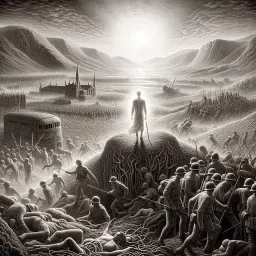
In the midst of chaos, there is also opportunity.
-
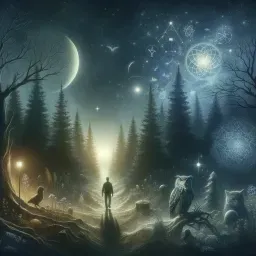
In the middle of the journey of our life, I found myself within a dark forest, for the straight way had been lost.
-
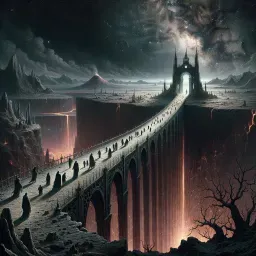
Abandon all hope, ye who enter here.
-

Politics, when I am in it, it makes me sick.
-
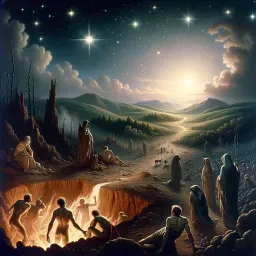
And then we emerged to see the stars again.
-
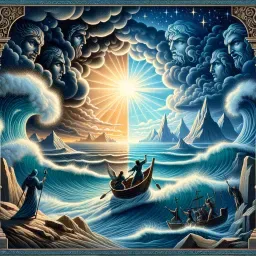
You were not made to live like brutes, but to follow virtue and knowledge.
-
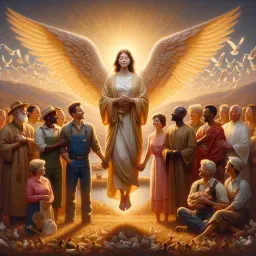
Love all, trust a few, do wrong to none.
-
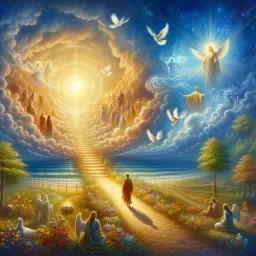
In His will is our peace.
-
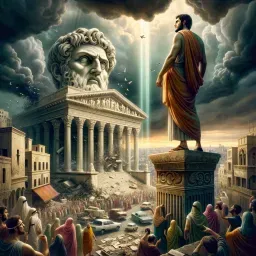
O tempora, o mores!.
No Comments